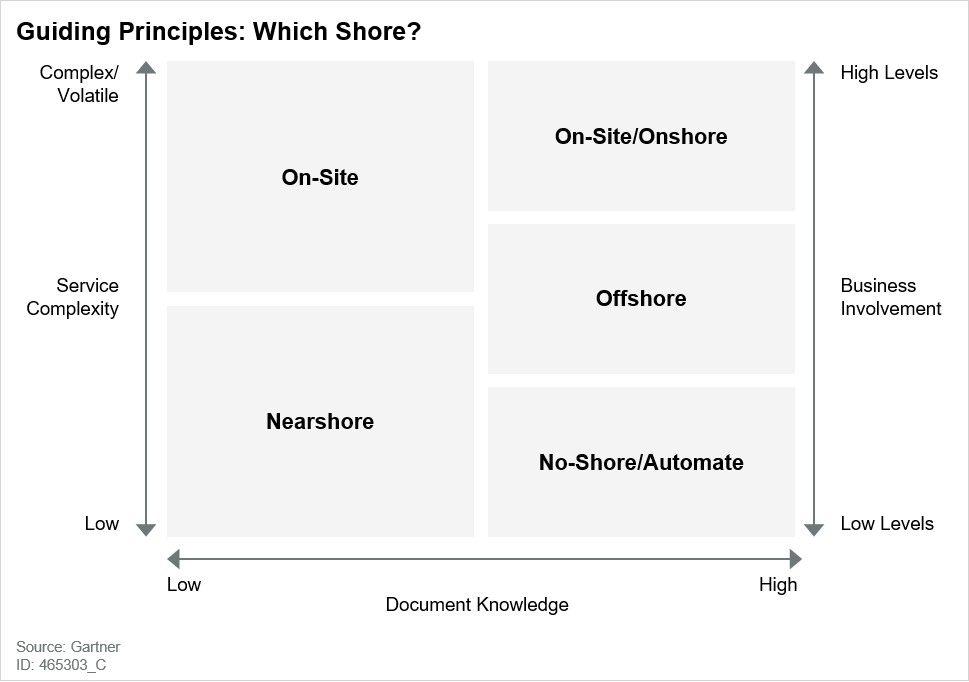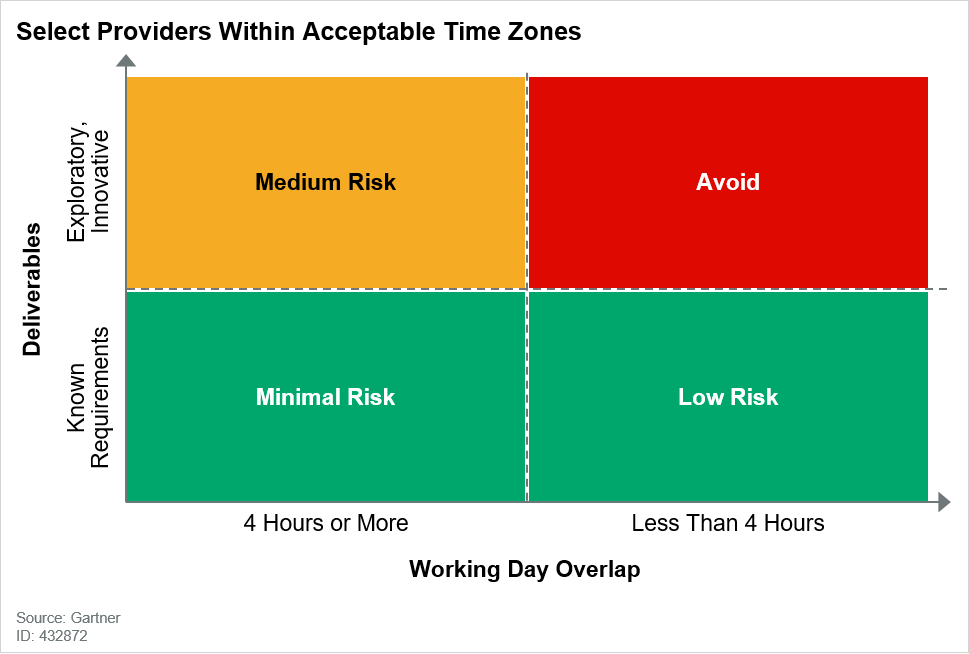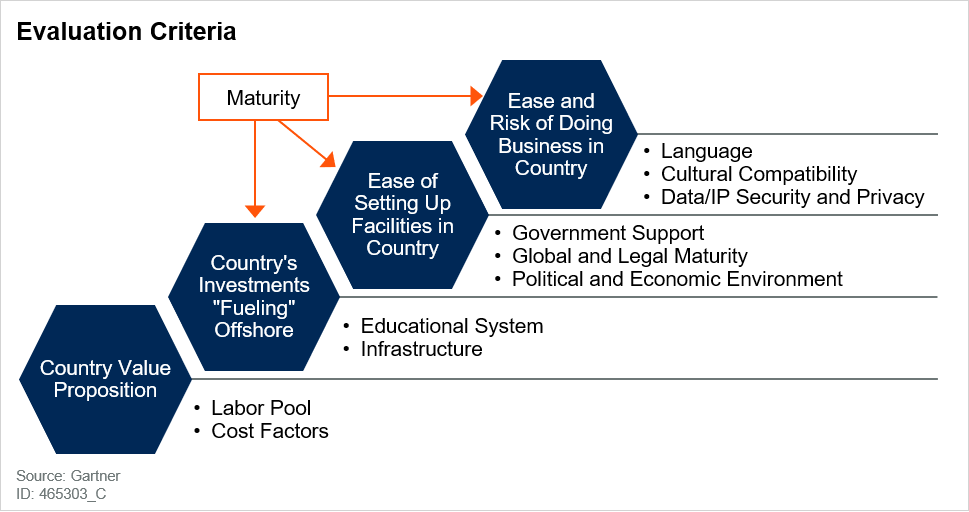Much time, resources, and efforts go into setting up an in-house software development team, especially if it is a small business with few resources. The lack of zeal to hire additional employees and low budget is often why small businesses choose to outsource their software development.
If your business falls under this category, and you’ve decided to outsource your software development, then you’ll find that there are two major options. You can either outsource to an onshore software developer or to an offshore development service.
Understanding the difference between onshore and offshore software development is therefore important. The knowledge of both options helps you determine which solution is most suitable for your company’s software development needs.

However, keep in mind both sides have advantages and disadvantages. Your primary goal is to consider your company’s needs, budget, timely delivery, and quality of the project result.
Onshore Software Development
 Collaborating with a software company in the same country as you are is known as onshore outsourcing. It means the project in its entirety is completed with skills and resources from your country.
Collaborating with a software company in the same country as you are is known as onshore outsourcing. It means the project in its entirety is completed with skills and resources from your country.
Onshore companies are known to possess exceptional customer service and excellent compliance with the country’s standards. It’s why many large companies opt for onshore software development services, such as Orases’ array of comprehensive service options.
Pros
Ease of Collaboration
Perhaps the top benefit of onshore outsourcing is the convenience that comes with it. The skills and resources are often easily available for in-person meetings, which builds better relationships and also saves time and effort since there is no need for transportation to other countries.
The range of business hours also favors both sides because the time zones are usually the same or within a few hours of one another. Therefore, there isn’t much hassle trying to work alongside the onshore team in real-time collaboration. In addition, long-distance communication channels are shortened, making way for faster and more responsive contact methods such as phone calls.
Policy Compliance
Hiring from your country means your outsourcing partner has a good understanding of how policies work. As a result, they have a better chance of complying with any laws or regulations regarding your project. These types of developers also approach problem-solving the conventional way for your country and targeted audience, not in an unrelatable way that might affect the project quality.
Effective Communication
Although collaborating remotely can also be effective, being in the same room with your outsourcing partner fosters clearer communication. Moreover, there is a high chance that you have the same cultural understanding, which adds more weight to the likelihood of the project’s success.
Language barriers often limit the scope of projects, especially if either side has a problem understanding the other. For example, an English-speaking company in the United States partnering with a Chinese company may result in communication mishaps for both sides.
 Through phone calls, one party may misunderstand or misinterpret the other due to accents and vocabulary. The issue of grammar and vocabulary may also be present in emails and texts as well, which may call for further clarification.
Through phone calls, one party may misunderstand or misinterpret the other due to accents and vocabulary. The issue of grammar and vocabulary may also be present in emails and texts as well, which may call for further clarification.
Therefore, staying within your state or country reduces the risk of language barriers. And with a commonly shared language, you can effectively communicate and discuss freely without fear of miscommunication.
Cons
Expensive
The benefits of onshore outsourcing come with higher billing rates, usually due to the quality team of developers working on your project. Luckily, this expensive cost is justified by the high quality of product design and software project solutions offered.
Even though you will get a lower price for offshore services, this lower rate could mean a reduction in quality. So, you might have to rework some parts of the projects. And, of course, reworking projects is quite expensive, and you could spend much more than anticipated.
Less Expertise
Some sources claim America has a decline in the number of skilled and experienced developers, making the remaining available options quite expensive. In this case, you will find that the list of available developers in your country comprises a limited pool of talents. Thus, they may not be able to provide the services you demand.
Risk of Backdoor Offshoring
If you hire an onshore company, you want to receive quality services within your country regardless of the cost. However, this doesn’t mean you eventually get the onshore service you paid for.
Some shady onshore companies also outsource to offshore partners to cut costs. Such practice is termed backdoor offshoring, and you need to effectively research onshore companies worthy of your investment.

Gain valuable insight into onshore and offshore software development with our executive’s guide.
Read Our Guide
Offshore Software Development
 Offshore outsourcing occurs when services and projects are provided by software development companies located in a foreign territory. It entails hiring someone with software development skills from countries outside the US.
Offshore outsourcing occurs when services and projects are provided by software development companies located in a foreign territory. It entails hiring someone with software development skills from countries outside the US.
A company in America can hire anyone or any company from China, Sweden, Prague, and many others. This means the company decided to outsource their software development in order to take advantage of the benefits. Offshore companies are known to offer excellent software solutions at a lower cost.
Pros
Lower Cost
Most companies opt for offshore outsourcing because of the lower cost of services. Sometimes, the difference in the exchange rate of currency also helps reduce how much you pay for the same services as an offshore developer.
Likewise, there is more competition in the international space, meaning there is competitive pricing, and foreign companies must adjust their rates to compete effectively. In places like India, Pakistan, and China, it is relatively easy to access less expensive resources, which means pricing is also less costly.
However, price competitiveness could be bad for complex projects. You might have to refactor the software solutions, which can increase the cost of services in the long run. You also risk paying for hidden charges not included in the estimate or, worse, getting swindled by shady developers.
The Pool of Expert Developers
There are various countries with experienced engineers, most with specializations that are probably limited or absent in your country. The variety of options makes it easy to choose between a pool of expert developers to work on your software.
It’s also common for different regions to specialize in certain software development aspects. For example, Ukraine is one of the best countries for outsourcing with companies like Samsung, Siemens, Sitecore, and other Fortune 500 companies having their R&D services in that country.
Faster Turnaround
The competitive atmosphere of offshore companies means they usually have more employees to dedicate to a project. This is because there are many projects available for software developers, and the faster they complete one, the faster they can begin working on the next one. Hence, the process and completion are faster.
Cons
Communications Barrier
Regardless of how experienced the offshore team is, communication is a factor that can determine the efficiency of the software solution. The disadvantage of some offshore software developers is, therefore, the possible difference in the mode of communication, cultural understanding, and regional policies.
In such language barrier scenarios, the project might be in greater jeopardy. Even though there are recommendations to use translators, there is still the risk of miscommunication during the process of gathering requirements for the project.
Lack Of Real-time Collaboration
Hiring outside your country means the developers could live in different time zones and have different work hours. The team could just be on the other side of the globe and working on your projects around the time you sleep, and vice versa. This causes a breach in progress because each party has to adjust methods and work hours to keep track of the project, slowing its overall pace.

For example, you may have caught an error within the software that requires immediate action. Upon discovery of the error, it may be work hours for your party, but not for the developer. The developer may not be able to respond to the request promptly. The conflicting time zones between the parties causes a delay in communication and thus puts a temporary hold on the project.
Additional Expenses
Although the estimate might seem low at first, some offshore companies have hidden charges that you later pay for during the project. In addition, should there be a need for face-to-face discussions, you will also have to spend a lot of time booking flights and quite a bit of money traveling between borders.
For complex projects outside the offshore company’s scope, you might need to rework some parts of the project. Due to the time and money involved in reworking projects, you will incur extra charges that might exceed your budget.
Cultural Differences
Cultural differences can heavily influence the design, development, and outcome of any software development project. Each society has a distinct way of interpreting problems and providing solutions. The manner of approach by the offshore team might have unintended consequences on the project because of this difference in beliefs.
There is also a difference in laws and policies between different countries. Hence, what is tagged illegal or forbidden in your country might be approved by others. Adopting an illegal approach can potentially cause legal issues with your software or waste time and resources in refactoring.

Work With A Quality Onshore Software Development Company Today
If you need complex software designs and your budget is flexible enough, you should go with the option of onshore development. As a top-rated onshore company, Orases is your best option for quality software solutions.





